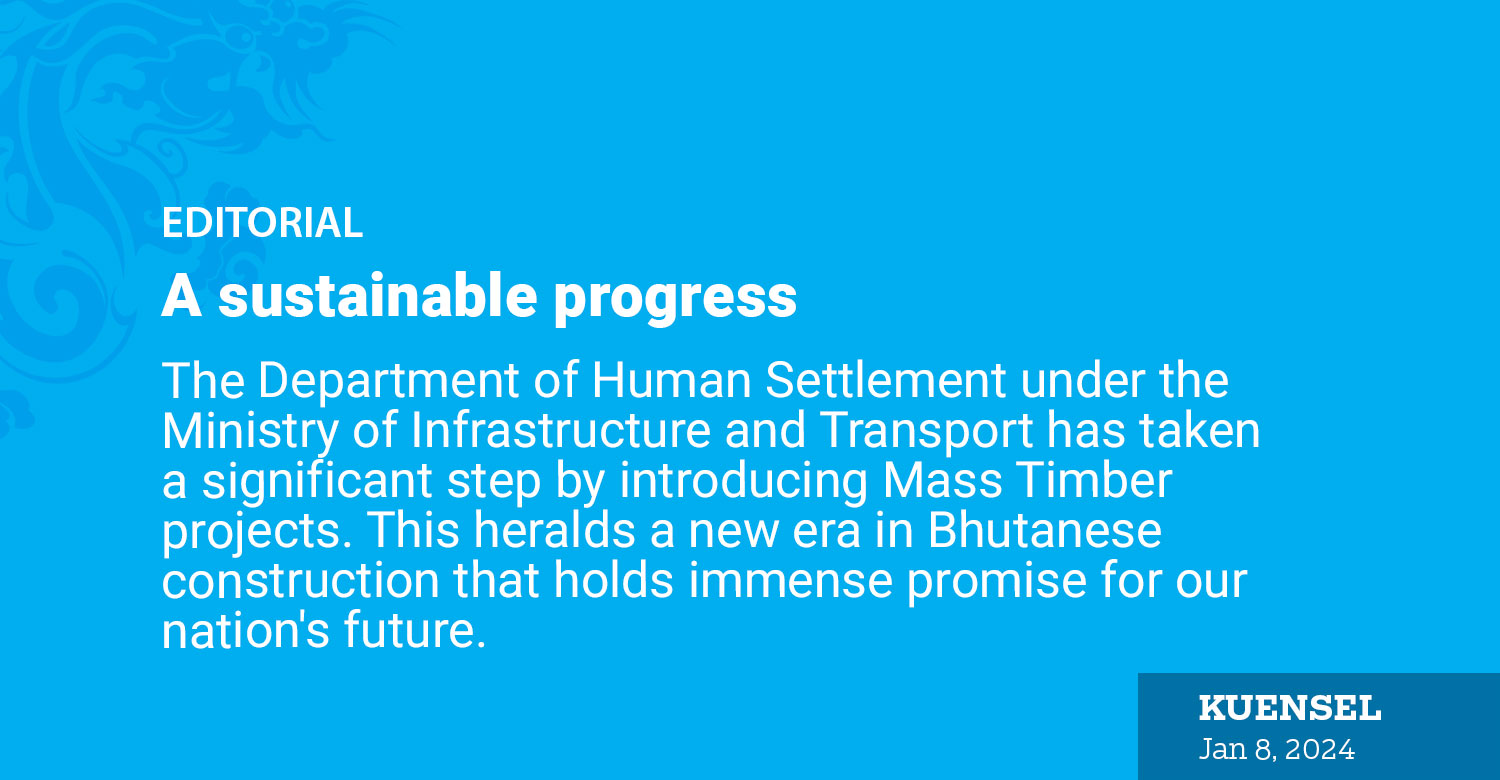The Department of Human Settlement under the Ministry of Infrastructure and Transport has taken a significant step by introducing Mass Timber projects. This heralds a new era in Bhutanese construction that holds immense promise for our nation’s future.
At its core, this initiative embraces the ethos of sustainable development, echoing Bhutan’s pledge to be a steward of the environment.
Mass Timber, comprising engineered wood products such as cross-laminated timber (CLT) and laminated veneer lumber (LVL), represents a departure from conventional construction materials. Instead of steel and concrete, we turn to the warmth of responsibly sourced wood, a material deeply intertwined with our cultural identity.
Why is this a momentous stride for Bhutan? The answer lies in the myriad benefits that echo beyond the construction sites, reaching into the fabric of our society and environment.
As we strive to maintain our carbon-negative status, the use of sustainably managed wood aligns perfectly with our commitment to preserve the pristine beauty of our landscapes. The very act of constructing with Mass Timber becomes a testament to our responsibility as custodians of the environment, capturing and storing carbon even as we build for the future.
Economically, this initiative opens doors to a flourishing forestry sector. The Department’s move can stimulate demand for locally harvested wood, injecting life into rural economies and providing employment opportunities. The ripple effect will be felt in the balance of economic growth across the country, where progress is not confined to urban centres.
By embracing Mass Timber, we can seamlessly blend tradition with innovation. Our architectural heritage, rooted in the use of wood, will find renewed expression in the modern world. The buildings constructed under this initiative will tell a story—a story of Bhutanese identity evolving without losing its essence, a narrative of cultural preservation in the face of progress.
The benefits extend beyond aesthetics. The lightweight nature of Mass Timber components can translate into swifter construction, a crucial advantage in our rugged terrain. Reduced construction times will not only enhance efficiency but also minimise energy consumption, resulting in a pragmatic step toward sustainable development.
Tourism, a vital component of Bhutan’s economy, stands to gain significantly from our commitment to environmentally conscious construction. As the world seeks destinations that echo with the melody of sustainability, Bhutan can become an example.
The long-term financial gains of Mass Timber cannot be overlooked. While the initial costs may be comparable to traditional materials, the energy efficiency and lower maintenance expenses over time present a compelling case for fiscal prudence.


